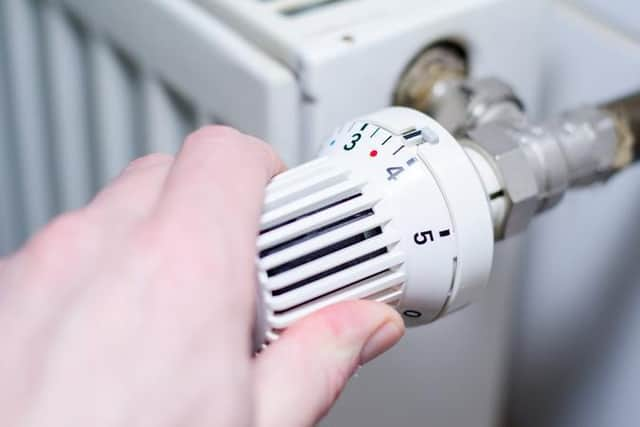Fears that rising costs of living will have 'devastating' impact on some Northumberland residents
and live on Freeview channel 276
That is the fear of Laura Ratcliffe, energy advice service manager at Citizens Advice Northumberland, after Ofgem announced the energy price cap will rise to a record £1,971 – with around 22 million households nationally seeing annual rises of around £700 from April.
Chancellor Rishi Sunak announced a £200 rebate on energy bills, which will have to be paid back, and a £150 reduction in council tax for properties up to Band D.
Advertisement
Hide AdAdvertisement
Hide AdBut Laura revealed: “We have already seen a huge increase in demand over the winter months as people try to manage the steep rise in their bills.


"This latest announcement of the additional energy price cap rise from April is very concerning and will force the majority of households to think carefully about their energy usage; and for those already struggling this rise could be devastating.
"It's important that people understand that the price cap is a cap on the unit price, not the overall bill, so if you use more, you will still be charged more.”
Alnwick District Food Bank has seen an increase in demand of up to 350% since the start of the current pandemic.
Advertisement
Hide AdAdvertisement
Hide AdAnd Clive Gibson, chairman of trustees, said: “If anything, we expect that demand to increase as the cost of living crisis bites.”
He added: “We have noticed a slight drop in donations as well which indicates that those who normally donate may well be tightening their own belts.”
Thousands of homes in Northumberland also have a low energy efficiency rating.
Energy Performance Certificates (EPC) show how effective a home is at keeping heat in, with ratings from A – the most efficient – to G – the least.
Advertisement
Hide AdAdvertisement
Hide AdFigures from the Office for National Statistics show 59% of homes in Northumberland had an EPC rating of Band D or below in 2020/21 – above the average in England, of 58%.
Separate figures from the Department for Business, Energy and Industrial Strategy show an estimated 20,640 households in the area experienced fuel poverty in 2019 – the latest statistics available.
Local support services include: Northumberland Communities Together helpline 01670 620015 or email [email protected]; Northumberland Adviceline 0808 278 7944 or www.citizensadvicenorthumberland.org.uk; Citizens Advice Northumberland Energy Project 01670 339749 or email [email protected]